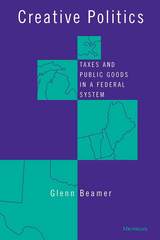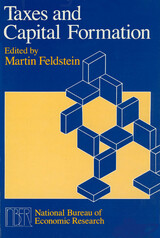
Beamer identifies six factors that influence legislators' decisions: accountability, dependability, equity, obscurability, and horizontal and vertical transferability. Within the context created by citizen demands, intergovernmental politics, policy histories, court interventions, and state constitutions, this study analyzes how legislators employ these principles to develop and enact policies.
In addition to modeling state politics within the context of federalism, Creative Politics, reflecting the author's extensive interviews with legislators, is novel in its focus on politicians' views about public services, the strategies to finance them, and efforts to develop and maintain political support for them.
This book will be of interest to students and scholars of political science, economics, and public administration, and, more specifically, of federalism, state politics and policy, and legislative decision-making.
Glenn Beamer is Robert Wood Johnson Scholar in Health Policy Research, University of California, Berkeley, and Assistant Professor of Government, University of Virginia.

By addressing some of the most critical policy issues of the day with a minimum of economic jargon, Taxes and Capital Formation makes the results of Bureau research available to a wide audience of policy officials and staff as well as to members of the business community. The volume should also prove useful for courses in public policy, business, and law. In keeping with Bureau tradition, the papers do not contain policy recommendations; instead, they promote a better understanding of how the economy works and the effects of specific policies on particular aspects of the economy.

"In tax administration," writes the author, "all countries can learn from each other." This revealing case study of the development of Israel's tax system--a system which has dealt with the full panoply of problems that tax administrators must face and which is further characterized by heavy taxation--offers a wealth of noteworthy examples for other countries.
Harold C. Wilkenfeld presents a detailed account of the historical and economic realities that forged Israel's elaborate tax structure from the Ottoman period to the present day. He scrutinizes such areas as the crises that Israel's tax administration faced shortly after the State achieved its independence, the problems which had to be solved, the formulation of administrative policy, the interplay of a developing civil service and a developing citizenry. All of these areas are viewed in the context of an evolving economy and a continuing external conflict.
The author presents practical guidelines for countries interested in advancing the effectiveness of tax administration. For instance, many of the Israeli administration's tactics against tax evasion may be transplantable to other nations. Likewise, a number of the technical solutions to administrative problems of both direct and indirect taxes can certainly and readily be adapted to conditions in a number of developing countries.
Taxes and People in Israel comes as a welcome addition to a field which offers few critical, historical studies of the entire tax system of a country. It will be of considerable interest to tax administrators and ought to be read by every new head of a tax administration. It should also prove a valuable source to public administrators, lawyers, sociologists, economists, and anyone concerned with giving fiscal advice to the developing countries.
READERS
Browse our collection.
PUBLISHERS
See BiblioVault's publisher services.
STUDENT SERVICES
Files for college accessibility offices.
UChicago Accessibility Resources
home | accessibility | search | about | contact us
BiblioVault ® 2001 - 2024
The University of Chicago Press









